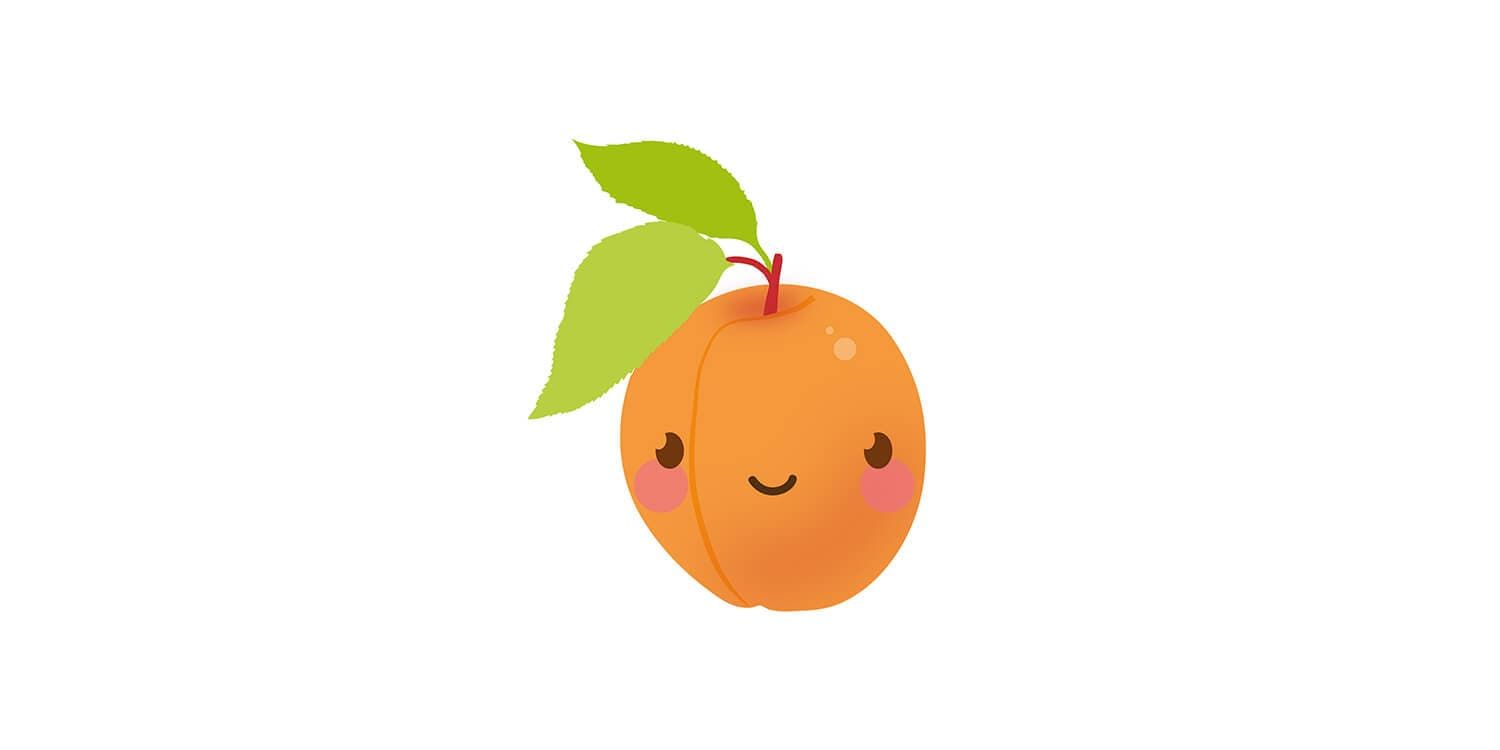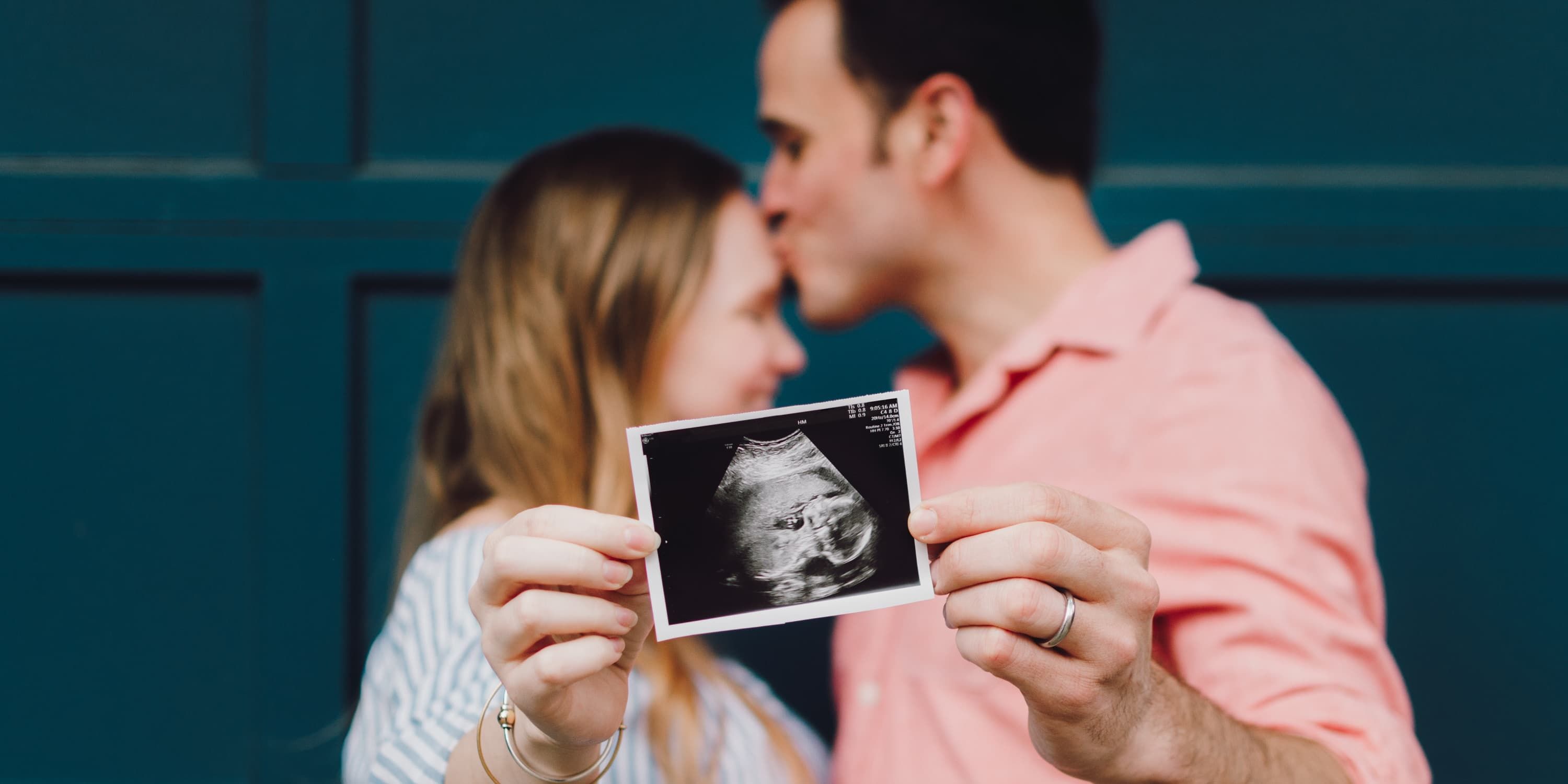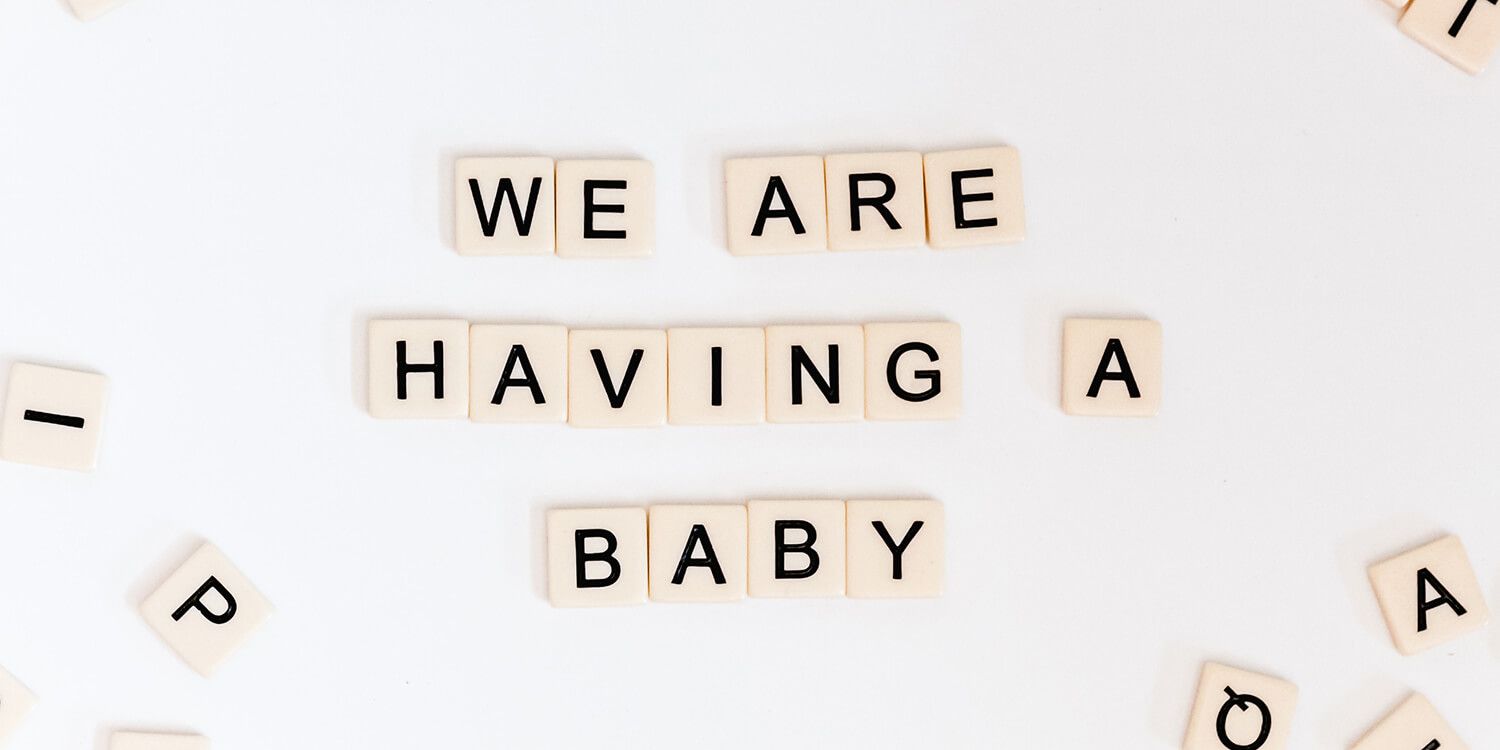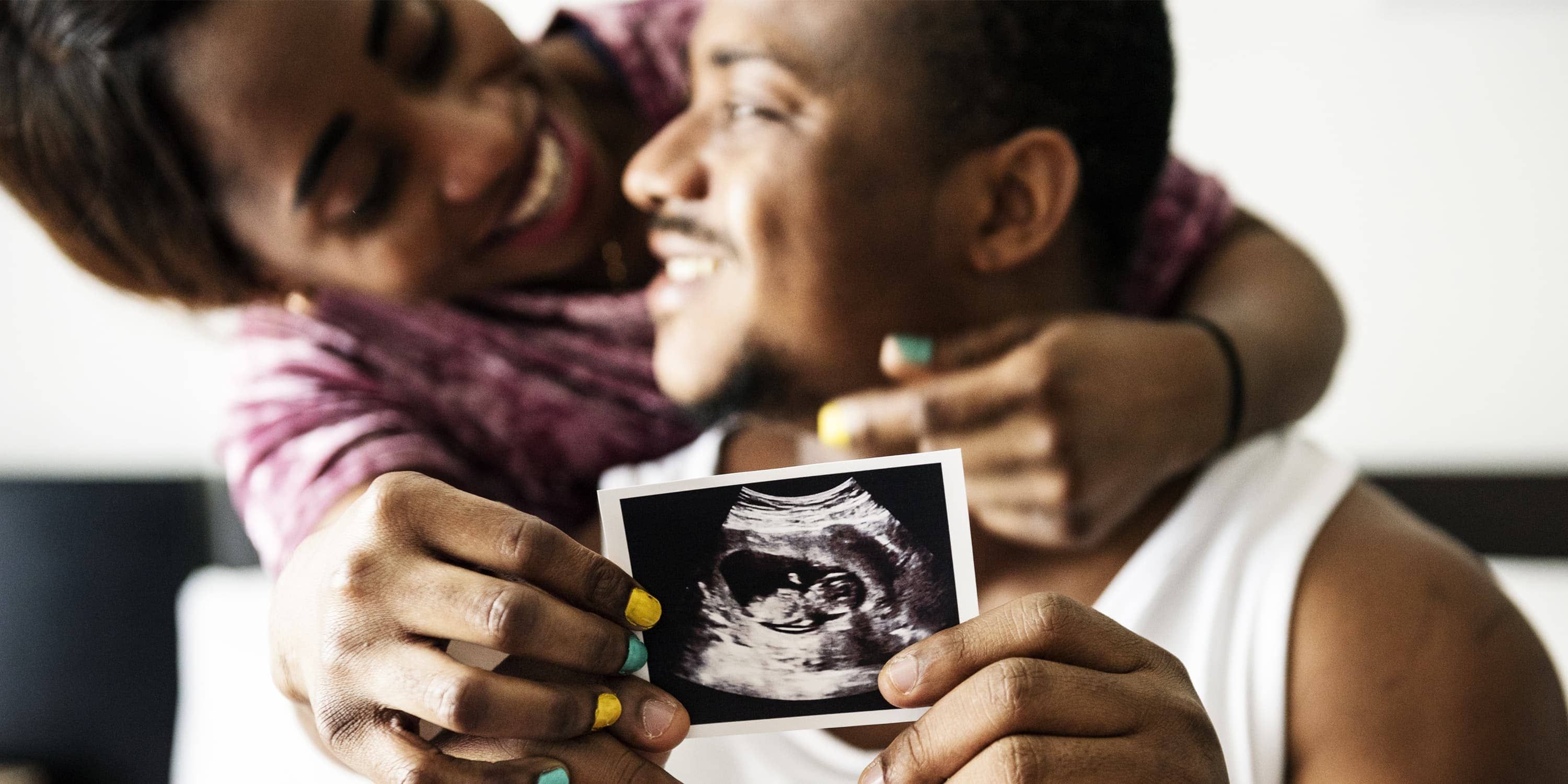So now you've reached the second trimester, which is the nicest stage for many expectant mothers. Read on to discover the milestones waiting for you and your baby in the 13th week of pregnancy.
What's going on inside you right now?
The foetus is now around 6 cm long and weighs 14-18 grams.
All the organs are in place and are continuing to mature until they are fully functional. It is around the 13th pregnancy week that the vocal cords form in the larynx. Your baby can also swallow already and practises breathing – the chest rises and falls. However, your baby will continue to be supplied with oxygen through the umbilical cord right up to the birth.
This practice time in the amniotic fluid is important so that the organs, muscle and joints develop well and the baby has control of all its vital faculties after the birth. Swallowing amniotic fluid fires up the gastrointestinal and kidney functions. The breathing movements train the lungs and the gymnastic exercises in the amniotic sac stimulate muscle growth.
Your baby is now roughly the size of a small peach.

The amniotic fluid does not simply act as a developmental "practice area". It is also a cushion to protect against external influences, regulate heat and prevent the foetus growing together with the sensitive foetal membranes.
The yolk sac, which used to feed the baby and produce blood cells, now disperses completely, and the liver, bone marrow and spleen take over the blood production.
What does the placenta do?
It is now fully developed and supplies the baby via your bloodstream. The placenta can be pictured as a tree with lots of branches which, in turn, divide into many twigs. These extensions have access to the mother's blood – so nutrients and oxygen can be brought to the baby and toxins can be removed. The placenta is also like a filter or protective shield for various pathogens and harmful substances (but not all). It also produces important hormones for pregnancy, birth and nursing.
A good blood supply is needed to allow these tasks to be performed, as they are vital for the foetus. High blood pressure, smoking and illnesses can reduce the supply and thus impair the baby's development.
How do you feel at 13 weeks pregnant?
Have you stopped having morning sickness? Then you can start to eat for two! Your body now needs around 300 extra calories per day (equivalent to three bananas or a slice of bread and cheese). Weight gain is individual. It depends on your starting weight and not just on the morning sickness during the first few weeks. You can expect to put on around 3 kg on average. Depending on your body type, your baby bump is slowly starting to show.
In addition to more calories, you now also need lots of vitamins and minerals. Ask your midwife or doctor if you are in any doubt as to whether you can meet these needs by eating certain foods or whether you need a dietary supplement.
Because of the increased volume of blood, your veins may become visible beneath your skin.
Although the pregnancy hormone (HCG) level is falling, production of the other hormones responsible for maintaining the pregnancy are running at full speed. The placenta can now also work without ovaries. The higher progesterone level increases the likelihood of constipation and low blood pressure.
Hormones can also increase the production of melanin, the skin pigment. This increases the pigmentation of the skin, and the nipples and labia, in particular, become darker.
Don't worry if you don't like this. After pregnancy, these changes generally disappear as quickly as they arrived.
Sources:
Your pregnancy week by week, Prof. Lesley Regan, DK Limited London, 2019, p. 110 f.
Photo: Unsplash





